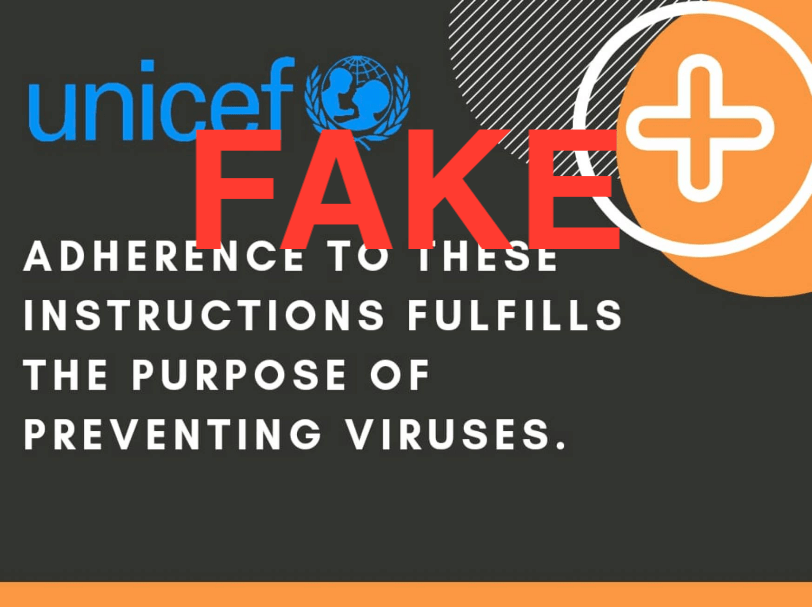Image source: Facebook
Debunked COVID-19 related bulletins that purportedly emanate from UNICEF continue to mislead and misinform on social media.
The advice bulletins have taken various forms, but the messages have remained the same, since they first started appearing online sometime in February 2020. The latest version of these fake United Nations Children’s Fund (UNICEF) bulletins that Namibia Fact Check came across on Facebook on 10 March 2020 looks as follows:
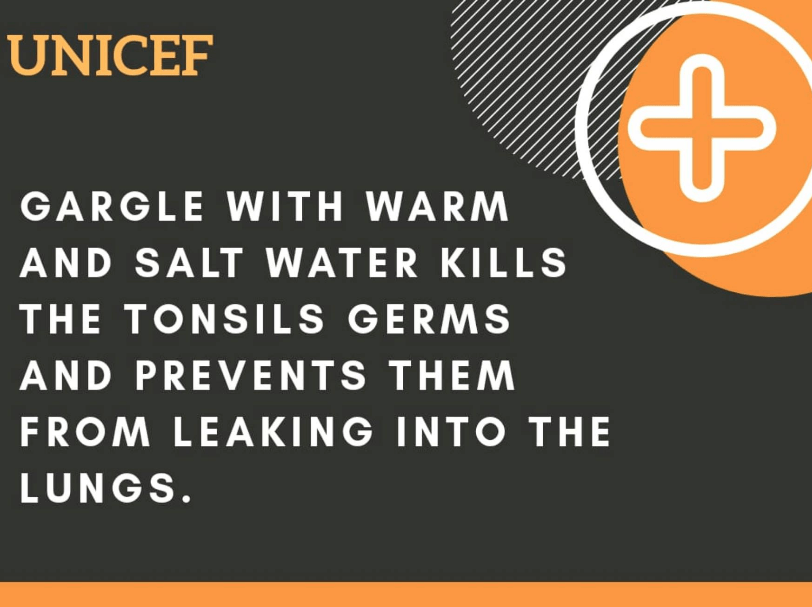
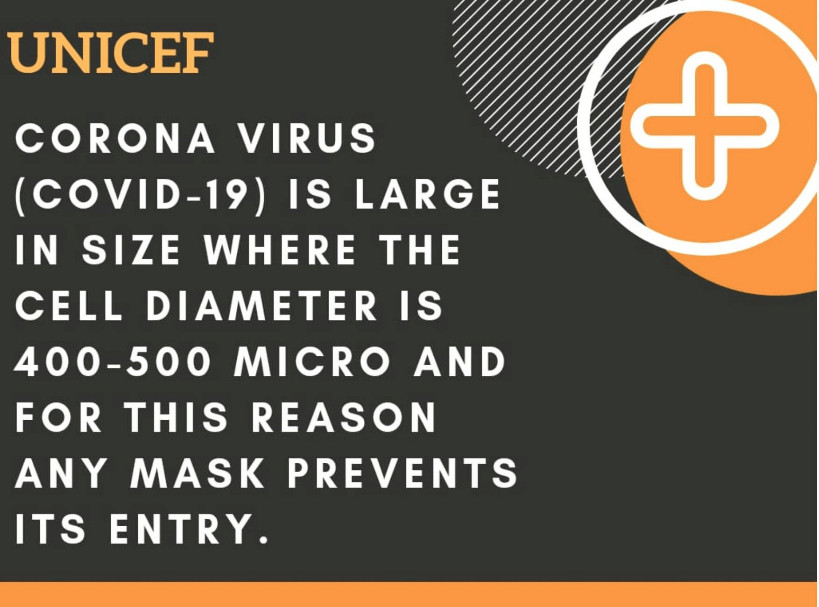
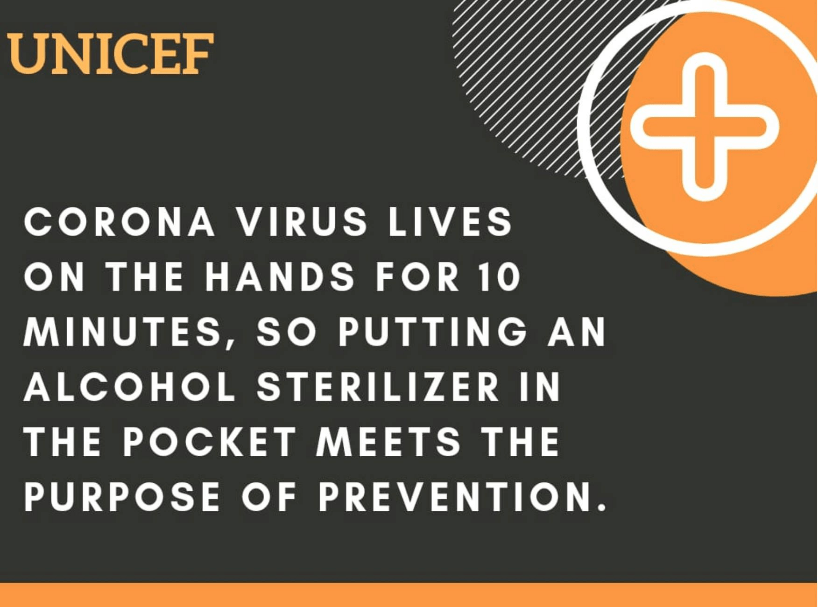
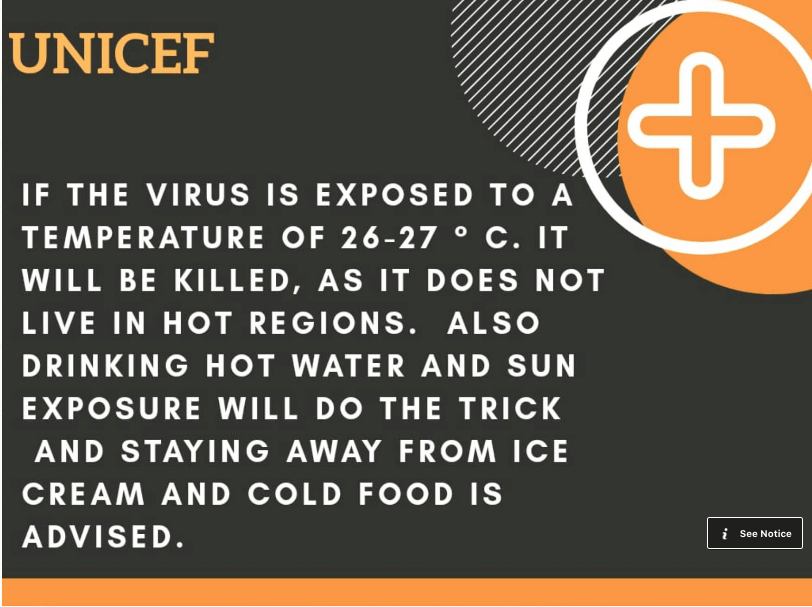
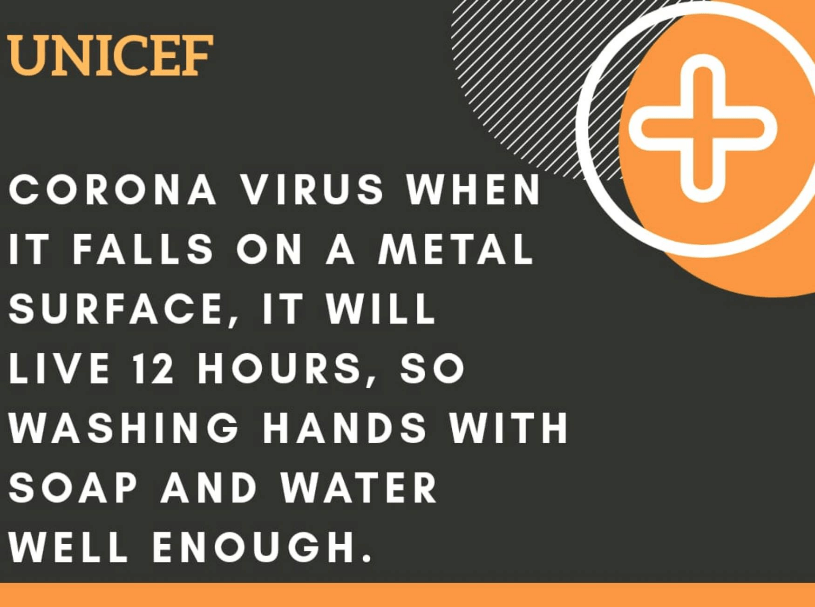
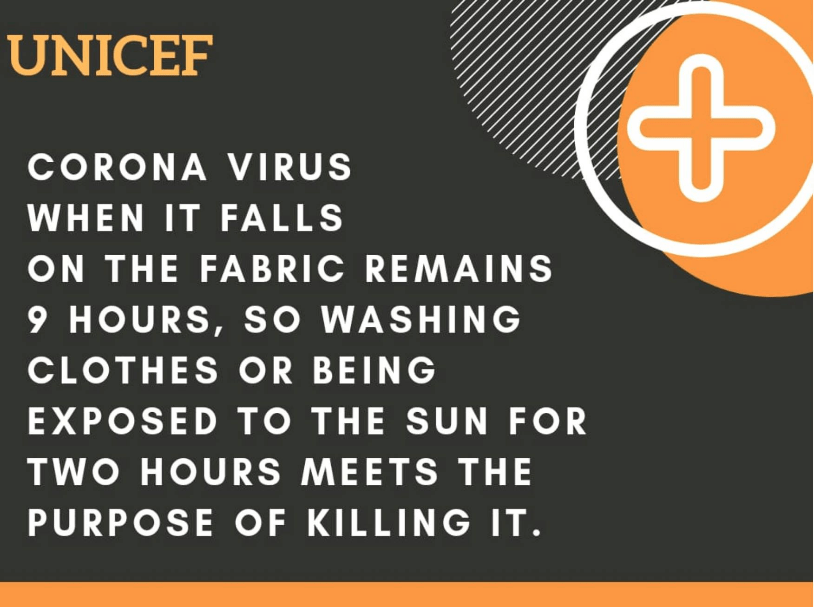
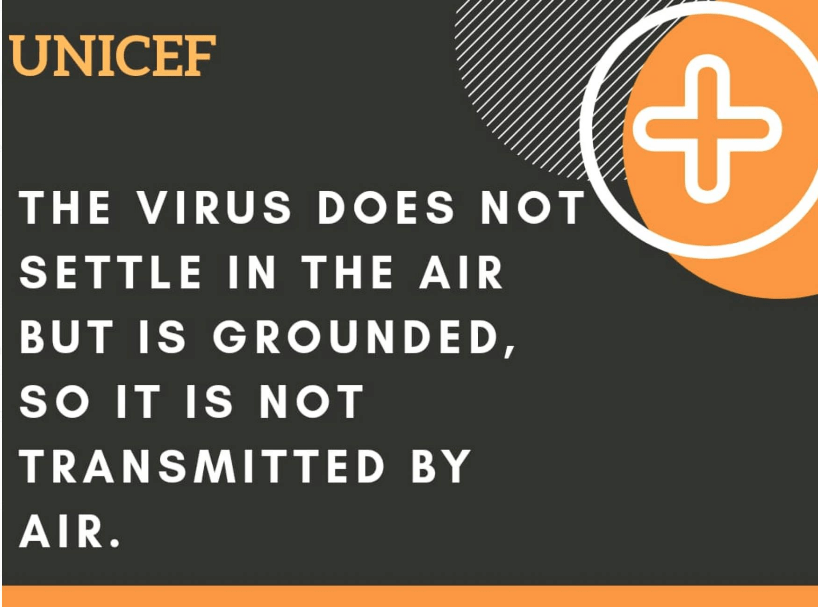
Namibia Fact Check has established that these advisory bulletins did not emanate from UNICEF and that they have in fact already been debunked. But they keep making a comeback, and on 6 March 2020, UNICEF issued a statement warning against this fake advice. The statement says, among others, the following:
“For example, a recent erroneous online message circulating in several languages around the world and purporting to be a UNICEF communication appears to indicate, among other things, that avoiding ice cream and other cold foods can help prevent the onset of the disease. This is, of course, wholly untrue.”
– UNICEF
And warns:
“It can be difficult in today’s information-rich society to know exactly where to go for knowledge about how to keep yourself and your loved ones safe. But it is critical that we remain as diligent about the accuracy of the information we share as we are about every other precaution we take to keep ourselves and our loved ones safe.”
– UNICEF
Various fact checkers around the world have debunked the fake UNICEF advisory messages over recent days. On 10 March 2020, AFP Fact Check published a comprehensive article online debunking the fake advice, stating:
“Much of the information listed in the misleading posts is inaccurate.”
– AFP Fact Check
For other fact checks of the fake UNICEF advisory posts see here and here.

